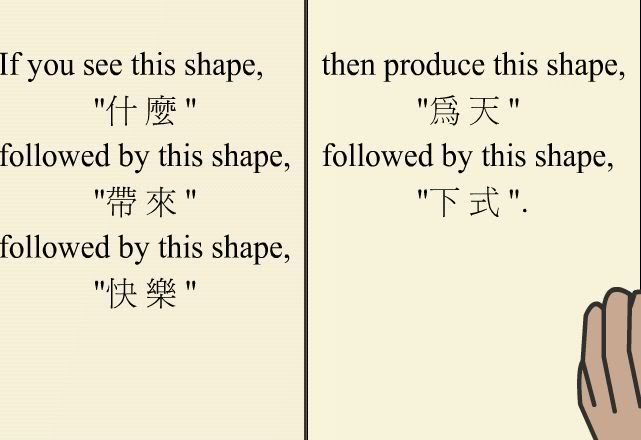
Ever heard of the Chinese Room Argument? It’s a thought experiment by the philosopher John Searle, who wanted to argue against what he called “strong AI”, which is the idea that, if programmed sufficiently, a computer can think and understand. This is related to the Turing Test, in which a computer is deemed intelligent if it can sustain a conversation with you without you realising that you’re speaking with a computer. Here’s how Searle painted the scenario:
Imagine a native English speaker who knows no Chinese locked in a room full of boxes of Chinese symbols (a data base) together with a book of instructions for manipulating the symbols (the program). Imagine that people outside the room send in other Chinese symbols which, unknown to the person in the room, are questions in Chinese (the input). And imagine that by following the instructions in the program the man in the room is able to pass out Chinese symbols which are correct answers to the questions (the output). The program enables the person in the room to pass the Turing Test for understanding Chinese but he does not understand a word of Chinese. [ . . . ] The point of the argument is this: if the man in the room does not understand Chinese on the basis of implementing the appropriate program for understanding Chinese then neither does any other digital computer solely on that basis because no computer, qua computer, has anything the man does not have.I feel like the man in the Chinese room. I keep blitzing these Japanese Language Course tests, but I still feel no more fluent in Japanese than I was when I first arrived here.




No comments:
Post a Comment